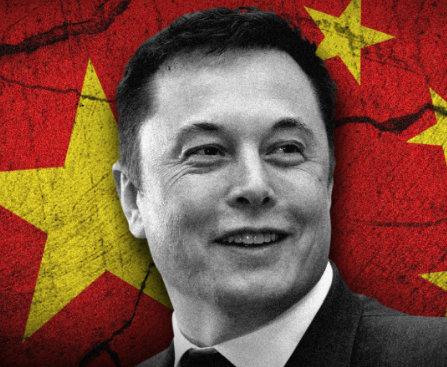SpaceX’s NASA Contracts Called Into Question After Legislators Finally Wake Up To Musk’s China Ties
Tyler Durden
Wed, 08/26/2020 – 10:45
It turns out the proverbial “deal with the devil” that Elon Musk has made between Tesla and China (a relationship we have called into questions many times, including here and here) could finally be coming back to bite Musk.
It appears that congressional negotiators are starting to take notice of just how cozy Musk and China have becoming over the last few years – and some of them are now “considering whether NASA contracts awarded to Elon Musk’s SpaceX represent a potential national security risk” as a result, according to the Washington Examiner.
Let us spoil the inquiry for them: yes. But now, it seems like it’s not just us that understands this.
A congressional Republican aide involved in NASA negotiations was quoted as saying:
“What is there to stop them from going to Musk directly and saying, ‘We’ll call your line of credit early, unless you give us X, Y, or Z?’ And, there’s no real clarity that there’s any kind of mechanism that would stop that other than good behavior by an individual.”
The question comes at a time of heightened tension between the U.S. and China. In addition to contentious trade negotiations last year, the China-induced global pandemic and questions about ongoing IP theft have kept the Trump administration on guard against potential threats out of China.
Colorado Sen. Cory Gardner said: “I’m concerned that companies in China could come into the U.S., make a sweetheart deal, take sensitive information, take proprietary technologies, and use it to enrich their own space program, their own national security efforts in China.”
Garnder has suggested that “the Government Accountability Office review NASA contractors for potential ties to China” and that NASA leaders take into account ties to China when awarding contracts. “The level of concern I’m hearing from companies who are in the U.S. and are concerned about this is alarming,” Gardner concluded.
Should Garner’s proposals gain traction, they could disproportionately affect SpaceX, due to Musk’s financial involvement with the Chinese government. Tesla secured a $1.4 billion credit line from state owned banks in December, the article notes.
An aide commented: “The thrust of that is obviously self-interested because they’re competitors, but it doesn’t mean that it’s not a valid concern. It’s sort of a classic dynamic, right? An established provider, an established interest, that is challenged by an upstart interest … if there was no SpaceX, ULA would love it because ULA would get more contracts. That doesn’t mean that the question isn’t worth asking and answering, though.”
The aide argued that it isn’t just Musk’s companies that are being targeted. “There are at least seven aerospace companies that have some element of Chinese investment that would raise red flags, like Tencent,” they said. Some in congress think that Gardner’s proposals are too vague to implement.
“I look at these provisions as pretty commonsense protections of our space programs and space technologies,” Gardner said. His team seeks to have malefactors banned from NASA contracts for at least a year and then giving NASA the opportunity to extend that ban for as long as 10 years.
A space industry executive concluded: “You live by wrapping yourself in the flag, you die by wrapping yourself in the flag sometimes. Elon is just having his own tactic used against him. And I promise you that if Elon could find his own Chinese angle to use against ULA, he’d do it.”
Recall, we were months ahead of this story when, back in April, we asked whether or not Musk risked becoming a Chinese asset due to his close ties and financial dependence on the communist country.
via ZeroHedge News https://ift.tt/34zsAkJ Tyler Durden

